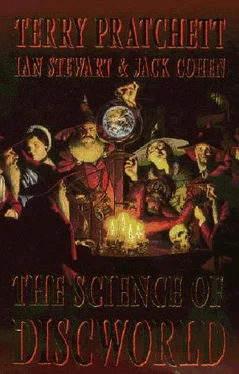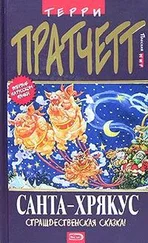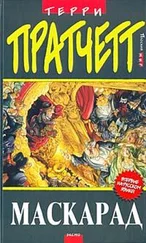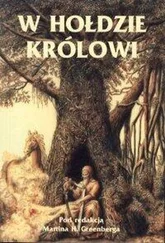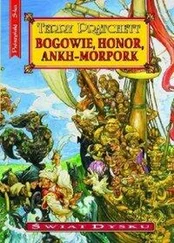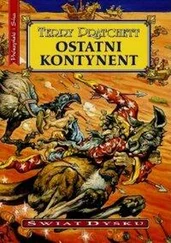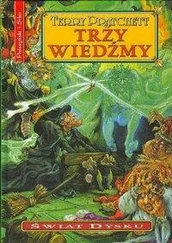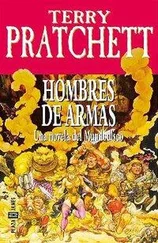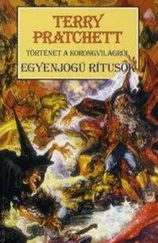Terry Pratchett - Science of Discworld
Здесь есть возможность читать онлайн «Terry Pratchett - Science of Discworld» весь текст электронной книги совершенно бесплатно (целиком полную версию без сокращений). В некоторых случаях можно слушать аудио, скачать через торрент в формате fb2 и присутствует краткое содержание. Жанр: Фантастика и фэнтези, на английском языке. Описание произведения, (предисловие) а так же отзывы посетителей доступны на портале библиотеки ЛибКат.
- Название:Science of Discworld
- Автор:
- Жанр:
- Год:неизвестен
- ISBN:нет данных
- Рейтинг книги:4 / 5. Голосов: 1
-
Избранное:Добавить в избранное
- Отзывы:
-
Ваша оценка:
- 80
- 1
- 2
- 3
- 4
- 5
Science of Discworld: краткое содержание, описание и аннотация
Предлагаем к чтению аннотацию, описание, краткое содержание или предисловие (зависит от того, что написал сам автор книги «Science of Discworld»). Если вы не нашли необходимую информацию о книге — напишите в комментариях, мы постараемся отыскать её.
Science of Discworld — читать онлайн бесплатно полную книгу (весь текст) целиком
Ниже представлен текст книги, разбитый по страницам. Система сохранения места последней прочитанной страницы, позволяет с удобством читать онлайн бесплатно книгу «Science of Discworld», без необходимости каждый раз заново искать на чём Вы остановились. Поставьте закладку, и сможете в любой момент перейти на страницу, на которой закончили чтение.
Интервал:
Закладка:
What is the elevator for life? Let's try to be general here, and look at the common features of all the different proposals for 'the' origin of life. The main one seems to be the novel chemistry that can occur in small volumes adjacent to active surfaces. This is a long way from today's complex organisms, it's even a long way from today's bacteria, which are distinctly more complicated than their ancient predecessors. They have to be, to survive in a more complicated world. Those active surfaces could be in underwater volcanic vents. Or hot rocks deep underground. Or they could be seashores. Imagine layers of complicated (because that's easy) but disorganized (ditto) molecular gunge on rocks which are wetted by the tides and irradiated by the sun. Anything in there that happens to produce a tiny 'space elevator' establishes a new baseline for further change. For example, photosynthesis is a space elevator in this sense. Once some bit of gunge has got it, that gunge can make use of the sun's energy instead of its own, churning out sugars in a steady stream. So perhaps 'the' origin of life was a whole series of tiny 'space elevators' that led, step by step, to organized but ever more complex chemistry.
UNNATURAL SELECTION
THE LIBRARIAN KNUCKLED SWIFTLY through the outer regions of the University's library, although terms like 'outer' were hardly relevant in a library so deeply immersed in L-space.
It is known that knowledge is power, and power is energy, and energy is matter, and matter is mass, and therefore large accumulations of knowledge distort time and space. This is why all bookshops look alike, and why all second-hand bookshops seem so much bigger on the inside, and why all libraries, everywhere, are connected. Only the innermost circle of librarians know this, and take care to guard the secret. Civilization would not survive for long if it was generally known that a wrong turn in the stacks would lead into the Library of Alexandria just as the invaders were looking for the matches, or that a tiny patch of floor in the reference section is shared with the library in Braseneck College where Dr Whitbury proved that gods cannot possibly exist, just before that rather unfortunate thunderstorm.
The Librarian was saying 'ook ook' to himself under his breath, in the same way that a slightly distracted person searches aimlessly around the room saying 'scissors, scissors' in the hope that this will cause them to re-materialize. In fact he was saying 'evolution, evolution'. He'd been sent to find a good book on it.
He had a very complicated reference card in his mouth. The wizards of UU knew all about evolution. It was a self-evident fact. You took some wolves, and by careful unnatural selection over the generations you got dogs of all shapes and sizes. You took some sour crab-apple trees and, by means of a stepladder, a fine paintbrush and a lot of patience, you got huge juicy apples. You took some rather scruffy desert horses and, with effort and a good stock book, you got a winner. Evolution was a demonstration of narrativium in action. Things improved. Even the human race was evolving, by means of education and other benefits of civilization; it had began with rather bad-mannered people in caves, and it had now produced the Faculty of Unseen University, beyond which it was probably impossible to evolve further.
Of course, there were people who occasionally advanced more radical ideas, but they were like the people who thought the world really mas round or that aliens were interested in the contents of their underwear.
Unnatural selection was a fact, but the wizards knew, they knew, that you couldn't start off with bananas and get fish.
The Librarian glanced at the card, and took a few surprising turnings. There was the occasional burst of noise on the other side of the shelves, rapidly changing as though someone was playing with handfuls of sound, and a flickering in the air. Someone talking was replaced with the absorbent silence of empty rooms was replaced with the crackling of flame and displaced by laughter ...
Eventually, after much walking and climbing, the Librarian was faced with a blank wall of books. He stepped up to them with librarianic confidence and they melted away in front of him.
He was in some sort of study. It was book-lined, although with rather fewer than the Librarian would have expected to find in such an important node of L-space. Perhaps there was just the one book ... and there it was, giving out L-radiation at a strength the Librarian had seldom encountered outside the seriously magical books in the locked cellars of Unseen University. It was a book and father of books, the progenitor of a whole race that would flutter down the centuries ...
It was also, unfortunately, still being written.
The author, pen still in hand, was staring at the Librarian as if he'd seen a ghost.
With the exception of his bald head and a beard that even a wizard would envy, he looked very, very much like the Librarian.
'My goodness ...'
'Ook?' The Librarian had not expected to be seen. The writer must have something very pertinent on his mind.
'What manner of shade are you ... ?'
'Ook.'
A hand reached out, tremulously. Feeling that something was expected of him, the Librarian reached out as well, and the tips of the fingers touched.
The author blinked.
'Tell me, then,' he said, 'is Man an ape, or is he an angel?'
The Librarian knew this one.
'Ook,' he said, which meant: ape is best, because you don't have to fly and you're allowed sex, unless you work at Unseen University, worst luck.
Then he backed away hurriedly, ooking apologetic noises about the minor error in the spacetime coordinates, and knuckled off through the interstices of L-space and grabbed the first book he found that had the word 'Evolution' in the title.
The bearded man went on to write an even more amazing book. If only he had thought to use the word ' Ascent ' there might not have been all that unpleasantness.
But, there again, perhaps not.
HEX let itself absorb more of the future ... call it ... knowledge. Words were so difficult. Everything was context. There was too much to learn. It was like trying to understand a giant machine when you didn't understand a screwdriver.
Sometimes HEX thought it was picking up fragmentary instructions. And, further away, much further away, there were little disjointed phrases in the soup of concepts which made sense but did not seem to be sensible. Some of them arrived unbidden.
Even as HEX pondered this, another one arrived and offered an opportunity to make $$$$ While You Sit On Your Butt!!!!! He considered this unlikely.
The title brought back by the Librarian was The Young Person's Guide to Evolution.
The Archchancellor turned the pages carefully. They were well illustrated. The Librarian knew his wizards.
'And this is a good book on evolution?' said the Archchancellor.
'Ook.'
'Well, it makes no sense to me,' said the Archchancellor. 'I mean t'say, what the hell is this picture all about?'
It showed, on the left, a rather hunched-up, ape-like figure. As it crossed the page, it gradually arose and grew considerably less hairy until it was striding confidently towards the edge of the page, perhaps pleased that it had essayed this perilous journey without at any time showing its genitals.
'Looks like me when I'm getting up in the mornings,' said the Dean, who was reading over his shoulder.
'Where'd the hair go?' Ridcully demanded.
'Well, some people shave,' said the Dean.
'This is a very strange book,' said Ridcully, looking accusingly at the Librarian, who kept quiet because in fact he was a little worried. He rather suspected he might have altered history, or at least a history, and on his flight back to the safety of UU he'd seized the first book that looked as though it might be suitable for people with a very high IQ but a mental age of about ten. It had been in an empty byway, far off his usual planes of exploration, and there had been very small red chairs in it.
Читать дальшеИнтервал:
Закладка:
Похожие книги на «Science of Discworld»
Представляем Вашему вниманию похожие книги на «Science of Discworld» списком для выбора. Мы отобрали схожую по названию и смыслу литературу в надежде предоставить читателям больше вариантов отыскать новые, интересные, ещё непрочитанные произведения.
Обсуждение, отзывы о книге «Science of Discworld» и просто собственные мнения читателей. Оставьте ваши комментарии, напишите, что Вы думаете о произведении, его смысле или главных героях. Укажите что конкретно понравилось, а что нет, и почему Вы так считаете.
